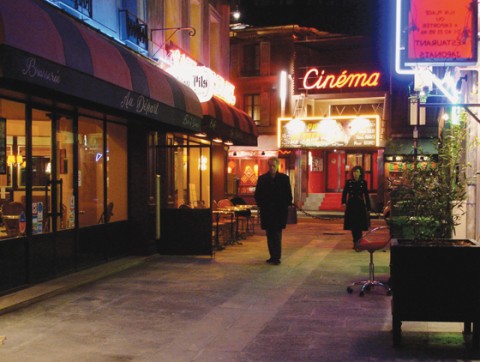Wild Grass

What is most startling about the iconic French director Alain Resnais is not that he is still making movies at the age of 88, but that his films still demonstrate such an unbridled love of cinema and its power.
Though best known for his groundbreaking movies of the 1950s and 1960s, Resnais has never stopped directing. Artistic naysayers have criticized his later work for lacking the philosophical import and intellectual gravity of his early classics, but this misses the point. Resnais is all about emotion—happy, sad and everything in between—and whatever it takes to squeeze that emotion out of his audience he is willing and eager to do. This includes his joyous use of artifice, light and shadow, contrasting color schemes and jumpy editing, along with his manipulation of familiar cinematic conventions, from voiceover narration to flashback and superimposition.
All of these techniques are on display in Wild Grass, a primer for how style and content can work together to create emotion. Based on the 1996 novel The Incident, by Christian Gailly (the first book adaptation Resnais has done), the tale's setup is deceptively simple. A single, red-haired, middle-aged dentist named Marguerite Muir (played by Resnais's wife and muse, Sabine Azéma) has her purse stolen after shopping for shoes. (You know you're in Resnais territory right off the bat when the narrator spends time before the robbery debating the pros and cons of purchasing new shoes.) Later, the purse's wallet is discovered in a parking garage by 60-something husband and father Georges Palet (André Dussollier, another Resnais regular).





